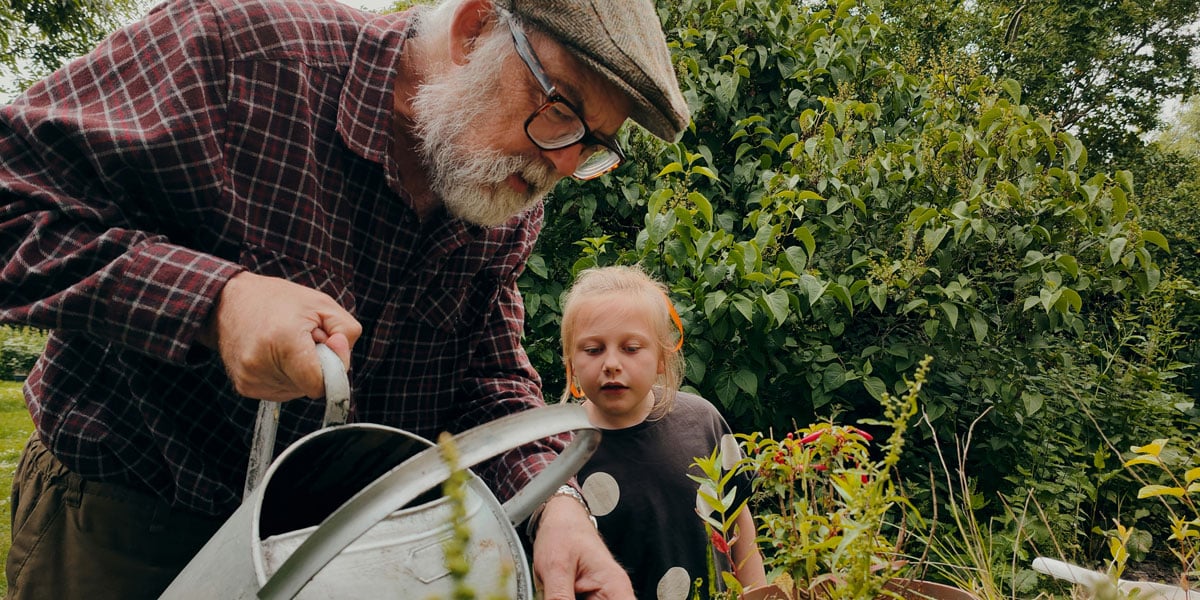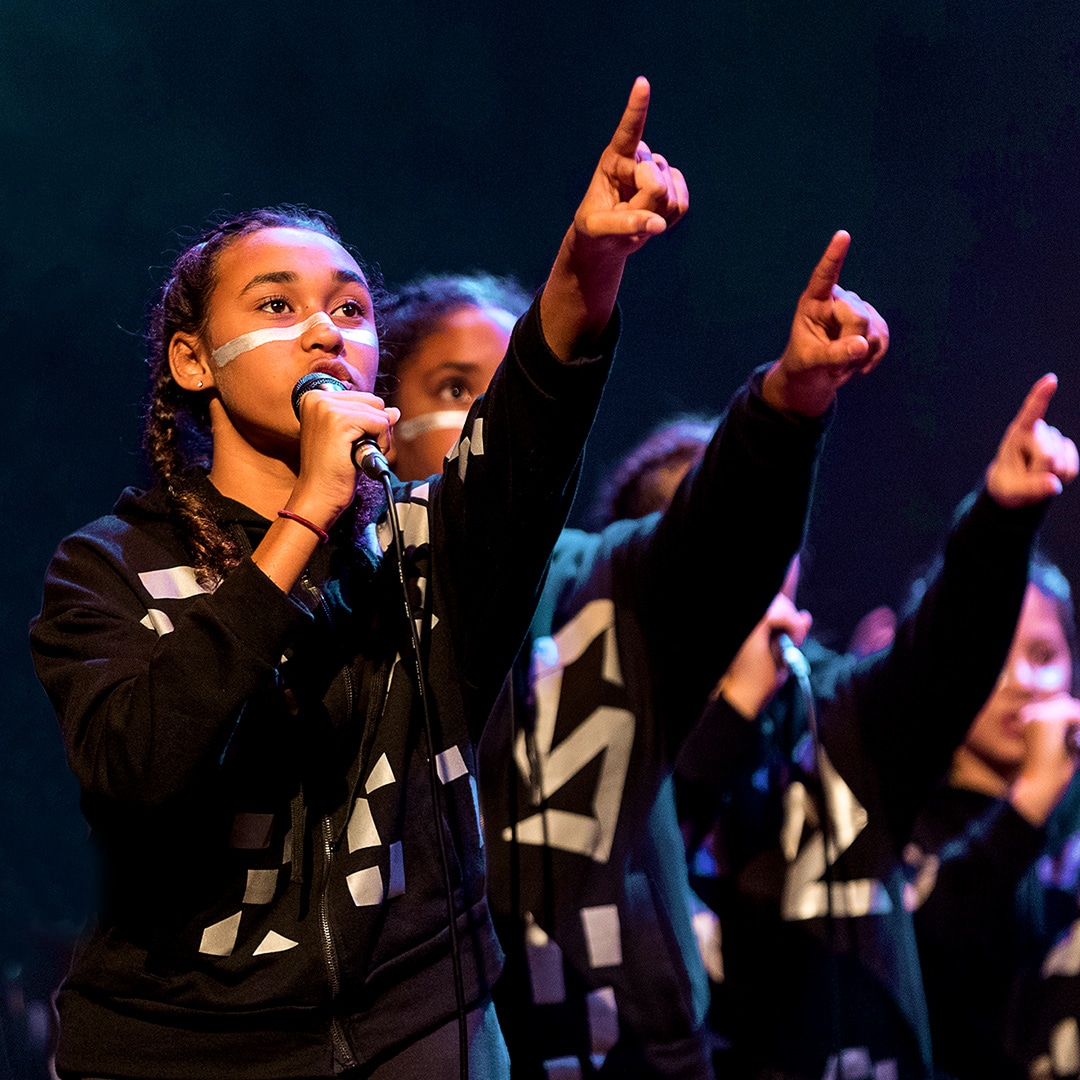
Do we exaggerate the difference age makes?
Opinion + AnalysisSociety + CultureRelationships
BY Emma Wilkins 19 MAY 2025
A few weekends ago, I made a parenting mistake. I didn’t realise in the moment. The penny didn’t drop, until a good friend made a comment afterwards.
My family was hosting a brunch with several other families. After a few hours in the noisy, sticky, fray, one of our kids asked to retreat. Sensing my hesitation, he pointed out that none of the other guests were of his age.
Partly in acknowledgement, and partly because the retreat he had in mind involved attacking the thistles taking over our front lawn, I let him slip away.
Shortly afterwards, sitting with a group of parents, watching syrup-crazed children run riot out the back, I explained his absence. One parent stopped me at the words “no one my age”. He was wondering, aloud, why age was relevant – let alone a reason to retreat.
The friend who stopped me was one who’d moved to Australia as an adult. He saw the culture he was living in, and the one he’d left, with the benefit of fresh, discerning eyes. Before he finished making it, I saw his point.
Why not expect our kids to socialise with others, regardless of age? Why not encourage them to enjoy the company of those younger than them, and the company of those older than them?
The friend in question told us he’d noticed this propensity to segregate by age before, and resolved not to succumb. He said he makes a point of crossing age divides, of greeting and conversing without discriminating, at social gatherings. Children, in particular, often seem puzzled by his attention. Sometimes they don’t return a greeting, or answer a question, they just stare. The stare might be translated to mean, “Why is this old dude talking to me?” or, “Why would I talk to this old dude?”. Sometimes they mutter something before running off, sometimes they just run off.
As the friend spoke, I recalled a social event where the child who’d just retreated had ended up deep in conversation with a grandparent he’d never met. I wished this image had come to mind earlier, prompted by the words “no one my age”. I knew both he and that grandparent had enjoyed their conversation, maybe as much as the cake, maybe more. It was proof age needn’t be a barrier.
Age needn’t be a barrier, but my friend’s description of children giving him quizzical looks when he acknowledges them suggests us adults are making it one. It suggests so few adults – not counting relatives – take the time to talk to them, that when one does it’s an anomaly.
I consider how much attention I pay to children who aren’t my own at social gatherings.
Sometimes, my attention is on fellow grown-ups and I don’t think to make an effort. At other times, I think to – then I overthink. I see a child and a compliment comes to mind but it’s based on their appearance, or a stereotype, so I censor myself. Or a question comes to mind, but the child in question is a teen and I imagine it will either induce a deep inward groan – “Not another adult asking what I’ll do post-school, how should I know?” – or defensiveness, or self-consciousness, or insecurity…
What lame excuses! If I want my kids to enjoy and initiate interactions and relationships with people of all ages, to throw age-related bias out the window, I should too – even if it requires a little bit of extra effort, creativity, or risk. Who cares if I induce an eye-roll or a groan? What matters is that I don’t just take a genuine interest, and show genuine interest, in adult’s lives, but in the lives of children, too.
I’m sure political philosopher David Runciman also attracts plenty of eye-rolls, as he did at last year’s Festival of Dangerous Ideas, when arguing that children as young as six should be allowed to vote. After acknowledging that many people find the idea laughable, he turns the question around. “Why shouldn’t they vote?” he asks. “They’re people; they’re citizens; they have interests; they have preferences; there are things that they care about.” Children might make irrational, ill-informed decisions, they might follow their tribe unthinkingly, they might dismiss facts that challenge pre-existing beliefs, but, he points out, adults might too.
“You can’t generalise about children any more than you can generalise about adults,” Runciman says, noting that being well-informed isn’t a prerequisite for voting. Being capable is, and six-year-olds, he argues, are.
Runciman speaks from experience – he once spent a term in an English primary school talking to kids as young as six about politics. Treating them “like they were full citizens”, he arranged for them to participate in the kind of focus groups political parties run for adults. The professional facilitator who ran them said one was among the most inspiring focus group sessions she’d ever been part of.
I’m not convinced children as young as six should be allowed to vote; I am convinced that when we assume we can’t learn from, or socialise with, or befriend them – when we widen the generational divide instead of closing it – we do ourselves and our society a disservice.
I was grateful, and I’m grateful still, that the friend who drew my attention to my parenting mistake didn’t let concern about how it might come across stop him from speaking his mind. Frank honesty is a quality some associate with children. Either way, it’s one that I admire.
I admired his persistence too – despite all those puzzled looks from kids, he’s persevered.
That persistence has paid off. It’s taken months, it’s taken years, but now some children run to him, or look for him at social gatherings. Now some consider him a friend.
For more, tune into David Runciman’s FODI talk, Votes for 6 year olds:

BY Emma Wilkins
Emma Wilkins is a journalist and freelance writer with a particular interest in exploring meaning and value through the lenses of literature and life. You can find her at: https://emmahwilkins.com/
Ethics in your inbox.
Get the latest inspiration, intelligence, events & more.
By signing up you agree to our privacy policy
You might be interested in…
Opinion + Analysis
Society + Culture
Who’s afraid of the Big Bad Wolf? The story of moral panic and how it spreads
Opinion + Analysis
Climate + Environment, Politics + Human Rights, Relationships, Society + Culture
The youth are rising. Will we listen?
Big thinker
Relationships
Big Thinker: Joanna Bourke
Opinion + Analysis
Health + Wellbeing, Relationships




